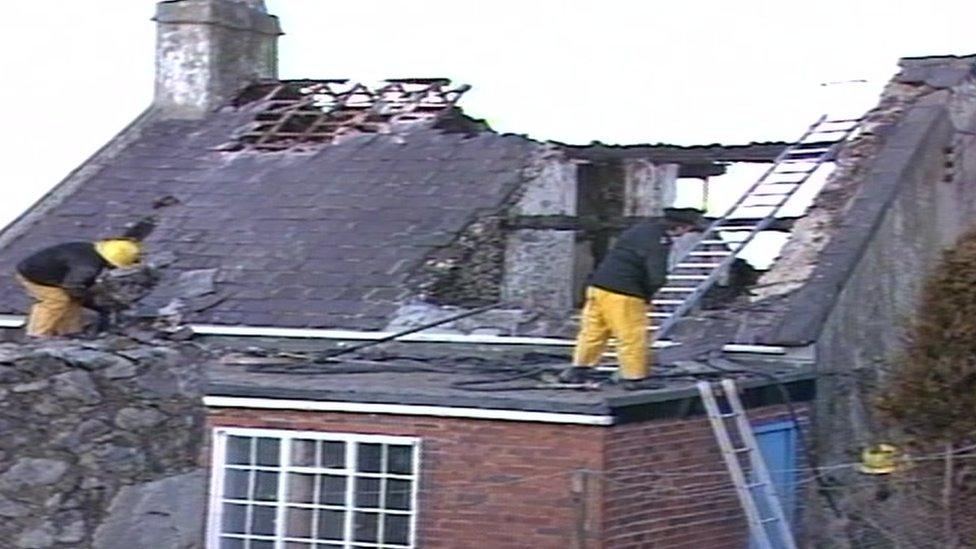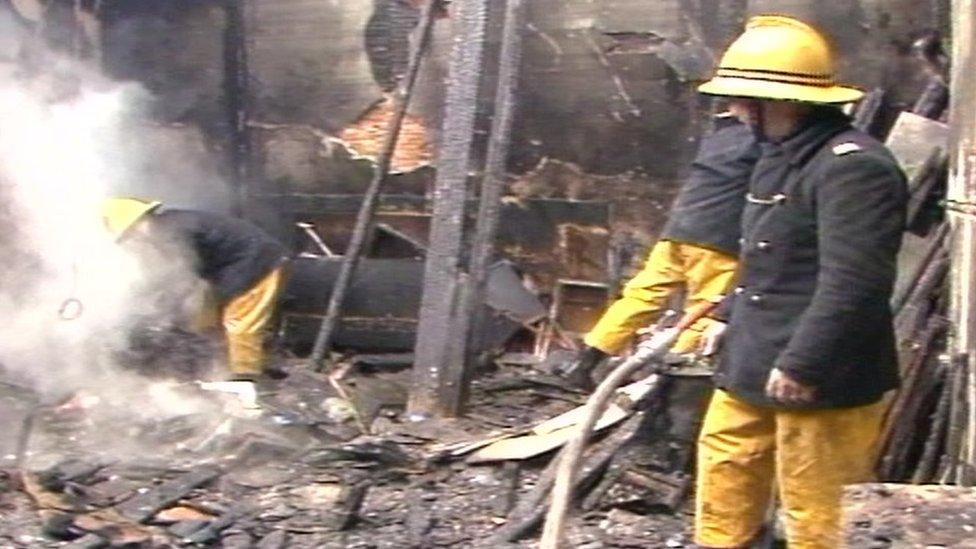Police 'should close case' on Meibion Glyndwr arsons
- Published

The cases of unsolved arson attacks on holiday homes in Wales during the 80s and 90s should be closed by police, an author has said.
Over a 12-year period from 1979, 228 properties were damaged across Wales.
Dubbed the Meibion Glyndwr campaign, it was thought to have been a protest, external against rural homes in Welsh language heartlands being sold to people from England as holiday cottages.
North Wales Police said unsolved investigations were never closed.
Only one person was ever convicted of being connected to the fires, which often saw empty properties completely destroyed.
Sion Aubrey Roberts was jailed for 12 years in 1993 for posting firebombs.
Now retired journalist Alwyn Gruffydd, who has written extensively on the arson attacks, said it was time for the inquiry to end.
Mr Gruffydd, who reported on the Meibion Glyndwr attacks for the BBC, said that 25 years since the last attack it was "about time the case was closed".
"The only way to do that is for the police or authorities to state that they will not accuse anyone else of being involved in the campaign," he told the BBC's Post Cyntaf programme.
This holiday home owner describes how she felt to have her cottage destroyed, in footage from 1986
The attacks began with the arson of four properties in the Gwynedd village of Nefyn and Pembrokeshire.
Targets were not just properties used as holiday homes but also estate agents offices, boat yards and caravans.
Mr Gruffydd also called on the authorities to release any files related to the campaign to the public.
Interviewed as part of a celebration of 40 years of Radio Cymru, Mr Gruffydd said police should "draw a line underneath the whole campaign and publish a final version of what happened".
Mr Gruffydd wrote a book - Mae Rhywun yn Gwybod, or Somebody Knows - about Meibion Glyndwr, which translates as Sons of Glyndwr.

In 2004, North Wales Police reopened an investigation, external into the arson campaign.
A spokesman for the force asked for anyone with information relating to the attacks "to come forward and tell us what they know".
"Unsolved investigations are never closed and are reviewed periodically," the spokesman added.
"A review presents an opportunity to revisit the investigation and to identify if there is any new forensic evidence that can add anything to the investigation."